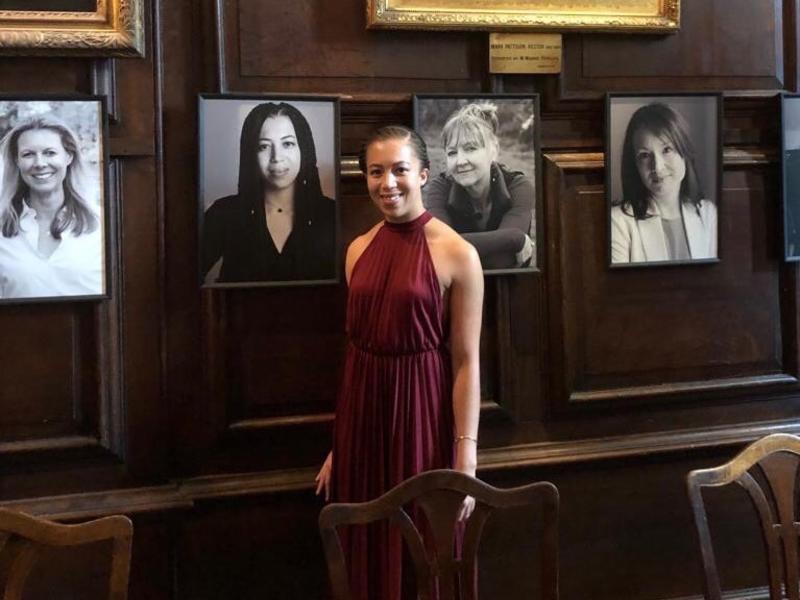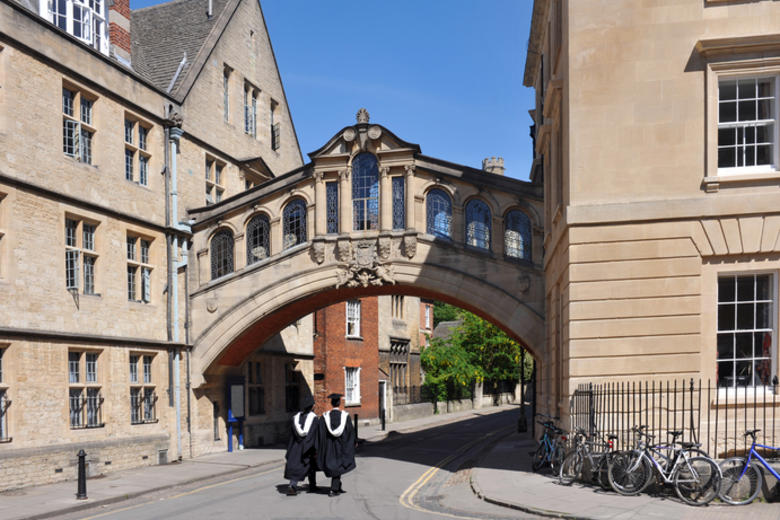NAOMI KELLMAN: CELEBRATING BLACK EXCELLENCE AT OXFORD

NAOMI KELLMAN: CELEBRATING BLACK EXCELLENCE AT OXFORD
Naomi Kellman (Lincoln, 2008) considers her time at Oxford
Published: 15 October 2019
Author: Lanisha Butterfield
Share this article
Then: Lincoln College (2008), BA Philosophy, Politics and Economics
Now: Schools, Universities & Data Manager at Rare Recruitment
When you look back at your time at Oxford what stands out?
When I arrived at Lincoln in October 2008, I was the only person of black African and Caribbean heritage in my year. This, combined with the fact that I was the first person in my family to go to university, made me wonder if I would ever truly belong.
It took me time to adjust, but by graduation, I was glad to have become part of the community. I made friends from completely different walks of life and had the opportunity to learn more than I had ever imagined – about my subject, myself, and others. I have fond memories of being up until 2am discussing philosophy.
What motivated you to study PPE?
When I was in Year 11 a teacher mentioned PPE to me in a careers meeting, and although Oxford seemed like another world at the time, the structure of the course really appealed to me. I also liked the idea of studying somewhere that was filled with the best minds in the country and being challenged on a regular basis. Once I realised that I met the grade requirements for Oxford, I decided that even though I had my concerns about applying, there was no good reason for me not to. I had just as much a right as anyone else.
What is a typical day like for you now?
My current role with Rare and Target Oxbridge is focused on helping students from ethnic minority and lower socio-economic groups to access Oxbridge and top internships and graduate roles. I don’t really have a typical day, which I really like.
I get to help young people on a daily basis, whilst also contributing to the much-needed improvement in representation and inclusion at some of the UK’s most influential institutions.
I work with students directly, writing research reports for clients, managing a team, and occasionally appearing on TV or radio to advocate for the causes we work on.
As someone involved in access, how would you explain its importance to people who may not understand the issue?
Access is incredibly important – I’ve dedicated the best part of the last eight years to working on it.
Oxford produces a very large proportion of the UK’s CEOs, politicians, judges and journalists. The more diverse Oxford is, the more diverse our future leaders will be, increasing the chance of us having leadership that is informed about, and considerate towards, the wide range of lived experiences across the country. Students who want to apply to Oxford should have access to the information and the support they need to do so, regardless of where they live, which school they attend, or who their parents are. Progress is being made but there is still a way to go, and so it is important to not get complacent. A lot of students already have the aspiration to study at Oxford – what they need now is support to do so.
What are you most proud of?
Having helped 142 black students to gain places at Oxbridge since 2012 through Target Oxbridge has definitely been a highlight.
Interviews – and the rest of my time at Oxford – taught me that even if things feel hard it’s still possible to do them well. That’s something that I share with my students on Target Oxbridge quite often.
What does Black History Month mean to you?
With the work that I do, black history always has prevalence in my day-to-day life. I think Black History Month provides the opportunity to highlight the parts of history that don’t receive the attention and focus they should. I think we should dedicate more time to considering how we integrate black history into the wider curriculum and national conversation however – it should not be restricted to just one month.
The students I work with on Target Oxbridge are great examples of black excellence. They are bright and ambitious, and despite the challenges they face, they continue to strive for the very best.
Having met the next generation, I have every confidence that the future is going to be a bright one.
Twitter: @Naomi_kellman
Celebrating black legacy at Oxford
Thanks to a media fascination with the days of Oxbridge past, Oxford’s longstanding diversity problems are well documented. To a lesser degree, so are the University’s increasing efforts to encourage applications from students from under-represented backgrounds, and build a more inclusive environment in general.
But what of the black and minority ethnic students who do successfully gain a place at Oxford University? Beyond the click-bait headlines Oxford has forged a connection to something much more powerful, and worthy of celebration: black excellence.
In recent years, Oxford has made strides towards addressing the University’s student body imbalance, and is currently attracting more black and minority ethnic students than ever before (18.3%) as a result.















